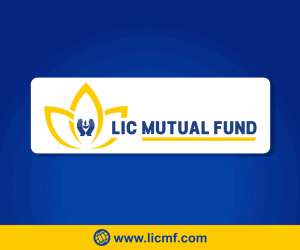What and how to manage your investment documents

In the last two articles we discussed what problem the family faces when somebody dies without keeping any records of his/her investments? How to recover them etc. Now, we will know what are the documents required for each type of investing or saving, what document the company provides to you, how to keep the documents and give access to your family, etc.
What are the common documents required for Saving and Investing?
PAN CARD – This is the first most important and almost mandatory document required for investing in any asset class in India. PAN number is frequently required for travelling abroad, buying Gold, Car, and property or opening a bank account, applying for a passport apart from normal investments. Remember, two-three things are very important here - Name, Date of Birth and your signature. The name should be correctly spelled else chances are everywhere your name will be wrong. Check the date of birth as it is a valid document for your age proof. Put in the same signature as you put elsewhere while applying PAN Cad as it also used as your signature proof. Needless to mention your father name should also be correct. Please note these informations are printed on the PAN Card.
You should also give correct and complete address while applying PAN CARD as your INCOME Tax refunds are sent to this address only even if you give different address while submitting IT returns. Remember, the address is not printed on the PAN Card.
In case of you find any details as wrong, do not worry as you can get them rectified by filing up the rectification form and submit with the proof of what you want to change – download from http://www.incometaxindia.gov.in/Archive/ChangeForm.pdf.. You can also verify the details of your PAN at https://incometaxindiaefiling.gov.in/portal/knowpan.do On-line applications can also be made at https://tin.tin.nsdl.com/pan/index.html and/ or at http://www.utitsl.co.in/utitsl/uti/newapp/newpanapplication.jsp
PASSPORT – This is another important document used commonly as you proof of identity, Date of Birth and address.
TELEPHONE (LANDLINE) & ELECTRICITY BILL – These are commonly used as your address proof while applying for PAN Card and Passport or open a bank account
BANK ACCOUNT – These days in India, every investment requires your bank account details. The less number of bank accounts you have the better it is. Commonly asked document is your Cancelled cheque copy and photocopy of your bank statement or bank pass book. Nowadays, all maturity payments, redemptions, interest and dividends are directly credited to your bank account. Therefore, I suggest that you select one bank account for all your investments so that you can track what is coming and what is not?
KYC – This is another document which is a pre-requisite for investing in Mutual Funds. For doing a KYC your photograph, address and identity proof is required. A Mutual Fund Advisor will do the needful. However the status of same can be viewed at http://www.cvlkra.com/kycpaninquiry.aspx. KYC is also required for opening a share trading account but that is done separately while opening the account and it is built-in inside the account opening form.
IT RETURN COPY – After Submitting your Income Tax Return you get this acknowledgment copy which needs to be kept safely as these are frequently required for large value transactions, your foreign travels, sending your kids overseas for higher education and seeking personal, Home or education Loans.
COMPUTATION OF YOUR INCOME/NETWORTH – Again, this is mandatory along with wherever your IT return copy is required. Without this you can not apply for Home, personal, educational or business loan.
Now, let us discuss what documents do you get against which investment?
LIFE INSURANCE POLICY – A policy Bond/ document wherein a complete detail of the policy terms along with policy number, Nominee name etc. is printed. This document is very important as the original is needed in case of a claim or maturity.
GENERAL INSURANCE (example – Mediclaim, Car etc.) – A Policy certificate is issued by the company which is normally valid for one year. You get a new certificate each time you renew else the policy gets lapsed. Along with this you will also get a Card with your photo and insurer details for showing to the hospital.
MUTUAL FUND – Here you don’t get a Bond instead you get an Account Statement which has a Folio No. or Account No. Each Mutual Fund Company gives a different Folio number as per their system. Therefore if you have invested across 15 schemes of different companies then you will have minimum 15 statements. However, this can be reduced by maintaining multiple schemes of each company under one folio.
PUBLIC PROVIDENT FUND (PPF)– You should get the passbook updated at the beginning of each financial year (FY) – this gives you a complete picture of total contribution made in the entire FY including interest credited and the total balance lying at the end of the FY. Income Tax rebate can be claimed under section 80C (for the amount contributed during the FY – maximum contribution one can make is 100,000 per FY) by submitting a copy of this passbook.
POST OFFICE SCHEMES – Like PPF, here also you get passbooks which need to be updated annually for the same reason as PPF. Some schemes do offer IT rebate therefore, you need to account them.
BANK ACCOUNTS – you either get a Quarterly or monthly statement or a passbook. This needs to be preserved for future and past references and in some transactions providing 6-12 months bank statement is mandatory. Needless to mention you also get the cheque book. Here, apart from the account number two more informations are very important – MICR CODE NO. this is a 9 digit number printed alongside the cheque no. and IFSC/RTGS Code, this is a 11 digit number printed on top of the cheque or on the first page of the cheque book. Remember these numbers are used frequently for on-line transactions as well as getting direct credits in your account.
SHARE TRADING AND DEMAT ACCOUNT – Though you provide lot of documents here, but you only get the trading account code and demat account details from the Broker. You should insist and obtain a photocopy or scan of the entire set of documents or check with your broker as some provide links for downloading the documents from their websites.
Now, we will discuss how to preserve or protect these documents?
This is very simple but commonly avoided or neglected by investors and most of the time we do find them when required due to improper maintenance of records.
Here, we have to use common sense. Each person might think differently in protecting or tracking them, but here are some simple ways –
- keep original copy of all the receipts scanned or photocopy in a file or folder. I suggest, for each policy one should maintain one file/ folder as you are supposed to keep all renewal receipts. You can keep the scan copies in separate folder in your computer.
- For each investment a seperate file should be maintained.
- Keep the Life Insurance policy Bond in your Bank Locker as you will not require them before maturity or claim
- Keep all Passbooks and cheque books in one place under lock and key. Do not keep and blank signed cheque.
- Keep your Demat account book also under lock and key as these are like blank cheque and required when you sell some shares. Remember, not to keep the book with you broker
- Mediclaim policy card should be kept in a place where it can be accessed instantly during an emergency. If you do not provide the details during emergency/ admission in the hospital you will not be able to claim the medical expenses.
- Now, most important – Keep every details maintained in an excel file wherein monthly/ quarterly/ half-yearly/ Annual payments of Insurance premium and others should be maintained. Those not using excel should maintain all the details in a register.
- Those who are very familiar using computers and internet the best way is to scan all the documents and keep them in separate folders and put it in cloud using www. dropbox.com - Dropbox is a free service that lets you bring all your photos, docs, and videos anywhere. This means that any file you save to your Dropbox will automatically save to all your computers, phones and even the Dropbox website. Dropbox also makes it super easy to share with others, whether you're a student or professional, parent or grandparent. Even if you accidentally spill a latte on your laptop, have no fear! You can relax knowing that Dropbox always has you covered, and none of your stuff will ever be lost.
Now, the last thing and the most important purpose for which this whole article is written. Share the details with your family. I am not saying you give access of everything to every one! Atleast your spouse or your grown up children (on whom you depend or confide in) should know this. I think, we all invest or save and protect our families only, so what is the harm if they know? Let them not get horrified or face a horror story in case you are not there.
Queries
-
What is the benefit of mutual fund STP
Aug 29, 2019
-
How much to invest to meet target amount of Rs 2 Crores
Aug 26, 2019
-
Can I achieve my financial goals with my current mutual fund investments
Aug 24, 2019
-
Can you tell me return of various indices
Aug 19, 2019
-
What would be the post tax return on different investments
Aug 18, 2019
-
Which Principal Mutual Fund scheme will be suitable for my retirement corpus
Aug 16, 2019
-
What is the minimum holding period for availing NCD interest
Aug 4, 2019
Top Performing Mutual Funds
Recommended Reading
Fund News
-
ICICI Prudential Mutual Fund launches ICICI Prudential Nifty EV and New Age Automotive ETF FOF
Mar 28, 2025 by Advisorkhoj Team
-
UTI Mutual Fund launches UTI Income Plus Arbitrage Active Fund of Fund
Mar 21, 2025 by Advisorkhoj Team
-
ICICI Prudential Mutual Fund launches ICICI Prudential Nifty EV & New Age Automotive ETF FOF
Mar 21, 2025 by Advisorkhoj Team
-
Angel One Mutual Fund launches Angel One Nifty 1D Rate Liquid ETF Growth
Mar 20, 2025 by Advisorkhoj Team
-
Zerodha Mutual Fund launches Zerodha Overnight Fund
Mar 19, 2025 by Advisorkhoj Team













